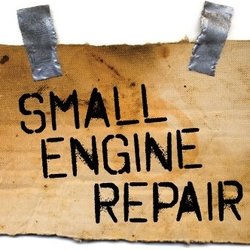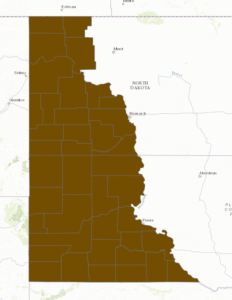Black Hills High Schools Should Develop Technical Academies
 Imagine dropping off your car at a local Rapid City garage for an oil change or other small repair job. Instead of same day service, you find yourself waiting a month or two months for the “it’s done”
Imagine dropping off your car at a local Rapid City garage for an oil change or other small repair job. Instead of same day service, you find yourself waiting a month or two months for the “it’s done”  phone call.
phone call.
This won’t happen with cars, but it will with small engine repairs during the summer months when weeds and grass are growing out of control.
The problem is that few men or women want to do this kind of work, which involves learning some how-to skills. The same with chimney sweeping and well-drilling. It’s related to the West’s immigration problem, as workers have to be enticed from Central America and the Middle East to labor in agricultural fields and other less glamorous jobs. But small engine repair can be learned at the high school level.
 The Fairfax County Public School system in Virginia actually teaches such a course. Taught by Brian Stokes, “Small Engine Repair Level 1 – Course #8082” is described as follows: “This course offers an intensive study of the operation, maintenance, and repair of small gasoline and diesel engines. Instructional topics include principles of operation of gasoline and diesel engines, tune-up and maintenance procedures, and disassembly, overhaul, and reassembly. Instruction may also include the operation of two-cycle and four-cycle engines commonly found on lawn mowers, garden tractors, snow blowers, rotary tillers, chainsaws, and other equipment.”
The Fairfax County Public School system in Virginia actually teaches such a course. Taught by Brian Stokes, “Small Engine Repair Level 1 – Course #8082” is described as follows: “This course offers an intensive study of the operation, maintenance, and repair of small gasoline and diesel engines. Instructional topics include principles of operation of gasoline and diesel engines, tune-up and maintenance procedures, and disassembly, overhaul, and reassembly. Instruction may also include the operation of two-cycle and four-cycle engines commonly found on lawn mowers, garden tractors, snow blowers, rotary tillers, chainsaws, and other equipment.”
The course is taught in the Edison Academy, “one of six academies in the Fairfax County Public School system,” offering “advanced, technical and specialized courses that primarily focus on career fields in the curriculum cluster of International Studies, Business, Engineering or Scientific Technology.” In fact, “Most programs will prepare students to earn national certifications of proficiency in their career related studies.”
Those in the course have the opportunity to intern or apprentice at small engine repair shops, perhaps also learning the business skills to open a repair shop of their own in the future.
Skill-based “trade” courses that could be taught in high school are almost endless, including house-wiring, concrete, landscaping, plumbing, automotive, carpentry, and cooking. DIY films on PBS and videos on YouTube are hardly enough. Even in junior high school, I took a full year of wood shop (7th grade), metal shop (8th grade), and electrical shop (9th grade).
carpentry, and cooking. DIY films on PBS and videos on YouTube are hardly enough. Even in junior high school, I took a full year of wood shop (7th grade), metal shop (8th grade), and electrical shop (9th grade).
What’s at stake is also a lifelong sense of personal confidence for both men and women—as well as the saving of repair and handyman costs. Ask any prepper or survivalist in the American Redoubt, including the western Dakotas.
 Imagine dropping off your car at a local Rapid City garage for an oil change or other small repair job. Instead of same day service, you find yourself waiting a month or two months for the “it’s done”
Imagine dropping off your car at a local Rapid City garage for an oil change or other small repair job. Instead of same day service, you find yourself waiting a month or two months for the “it’s done”  phone call.
phone call. The Fairfax County Public School system in Virginia actually teaches such a course. Taught by Brian Stokes, “Small Engine Repair Level 1 – Course #8082” is described as follows: “This course offers an intensive study of the operation, maintenance, and repair of small gasoline and diesel engines. Instructional topics include principles of operation of gasoline and diesel engines, tune-up and maintenance procedures, and disassembly, overhaul, and reassembly. Instruction may also include the operation of two-cycle and four-cycle engines commonly found on lawn mowers, garden tractors, snow blowers, rotary tillers, chainsaws, and other equipment.”
The Fairfax County Public School system in Virginia actually teaches such a course. Taught by Brian Stokes, “Small Engine Repair Level 1 – Course #8082” is described as follows: “This course offers an intensive study of the operation, maintenance, and repair of small gasoline and diesel engines. Instructional topics include principles of operation of gasoline and diesel engines, tune-up and maintenance procedures, and disassembly, overhaul, and reassembly. Instruction may also include the operation of two-cycle and four-cycle engines commonly found on lawn mowers, garden tractors, snow blowers, rotary tillers, chainsaws, and other equipment.” carpentry, and cooking. DIY films on PBS and videos on YouTube are hardly enough. Even in junior high school, I took a full year of wood shop (7th grade), metal shop (8th grade), and electrical shop (9th grade).
carpentry, and cooking. DIY films on PBS and videos on YouTube are hardly enough. Even in junior high school, I took a full year of wood shop (7th grade), metal shop (8th grade), and electrical shop (9th grade).